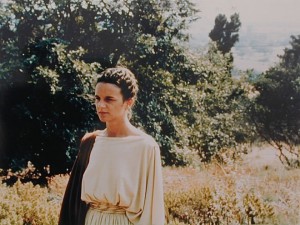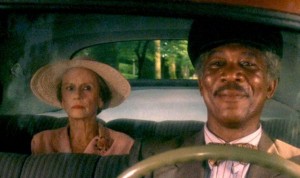The Death Of Empedocles
From the Chicago Reader (November 1, 1988). — J.R.
The tenth and latest feature of European avant-garde filmmakers Jean-Marie Straub and Daniele Huillet — filmed in Sicily and using as its text the first of three versions of Friedrich Holderlin’s unfinished 1798 verse tragedy — is one of their most beautiful works; but like all the best avant-garde work, watching and listening to it requires some adjustments in our usual activity as spectators — adjustments that involve new areas of play as well as work. This is a film in which sound matters at least as much as image, and where the lovely natural settings (filmed in 35-millimeter by Renato Berta) are as important as the actors and the text. The sound of Holderlin’s highly metered German blank verse is the most sensually rich use of that language that I have ever heard, and even if, like me, you don’t understand the language, the selective subtitles should be regarded as footnotes to glance at rather than as a substitute for the main text. Unlike the texts in Straub and Huillet’s early work, the text here is dramatically and expressively acted, and the compelling cast includes Andreas von Rauch as Empedocles (a Greek philosopher expelled from his community for blasphemy, and bent on suicide), Howard Vernon (who acted in Fritz Lang’s The Thousand Eyes of Dr. Read more


